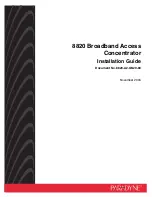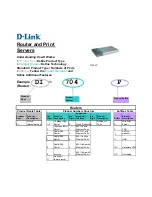
Troubleshooting and Maintenance Manual
Page 14
When to Contact Emulex
Contact Emulex if you still experience problems after you:
•
Review the checklists in this manual and follow any suggestions for basic troubleshooting, such
as updating driver or firmware.
•
Verify the environment is supported.
If the adapter is a standard Emulex model, use the online knowledgebase located on the support section
of www.emulex.com for resolutions to the problem. The knowledgebase is available 24/7.
If the knowledgebase does not provide an adequate solution, contact Technical Support. When
contacting Technical Support, the information you need to have available will vary according to the type
of problem. However, for all OSs you need the following information:
•
OS version and patch level.
•
Adapter models in use.
•
Firmware version installed on each adapter.
•
FCODE/OpenBoot/BootBIOS version installed on the adapter.
•
Driver version and OneCommand Manager or HBAnyware application version installed on each
affected host.
•
Listings or screen shots of any errors that are related to the issue.
•
Any changes or updates made to the SAN, OS, adapter firmware or driver lately.
•
A SAN map, if available.
•
The vendor make and model of storage in use.
In addition, the following information is needed for these specific OSs:
•
For Linux (at a minimum)
•
A copy of /var/log/messages and any logs the Emulex installer scripts provide.
•
If possible: the tarball output of the Emulex System Grab Diagnostic Tool found on the
Linux download section of the Emulex Web site.
•
For Solaris with the lpfc driver
•
A copy of /var/adm/messages.
•
A copy of /kernel/drv/lpfc.conf.
•
A copy of /kernel/drv/st.conf (for tape).
•
A copy of /kernel/drv/sd.conf (for disk).
•
For Solaris with the SFS FCA driver:
•
The versions of the SFS packages or patches installed.
•
A copy of /kernel/drv/emlxs.conf.
•
For Windows:
•
A copy of the System Event log.
•
For the OneCommand Manager or HBAnyware application, a copy of the Applications
Event log.
•
For HP-UX:
•
A copy of the output of command 'ioscan -fkn'.
•
For NetWare:
•
A capture of all messages when the server is started (if possible).








































